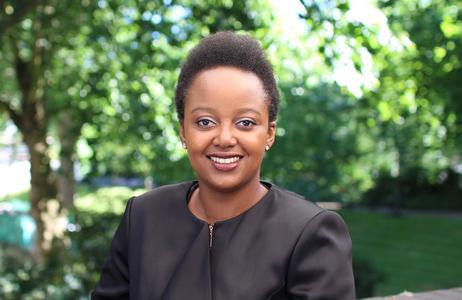Natasha Shotunde

Tell us about your background and why you decided to become a barrister.
I grew up in Tottenham, in a single parent household with my mother who is of Nigerian/Kenyan descent. She instilled the importance of education in me and was keen for me to join a profession. At the age of 9, I decided to choose the profession I wanted to enter. I did not have any close family or friends who worked in the "traditional" professions at the time so my only influence was television dramas. I initially wanted to become a doctor, but after watching Casualty on television, I decided that medicine was not for me. My mother was an Eastenders fan at the time, and, when watching a court scene, I asked her who the people "in the wigs" were. She told me they were barristers and I became hooked on the profession.
Did you face any obstacles along your journey to becoming a barrister and how did you overcome them? Have any of them persisted since becoming a barrister?
I have had many obstacles in my journey to becoming a barrister. My first obstacle was not being accepted to the Russell Group universities I had applied for. This was my first experience of rejection and was the start of many. My second (imagined) obstacle was obtaining a 2:1 degree from my university. Despite the fact that it was a high 2:1, I was convinced that I would not make it to the Bar without a first and was devastated about my degree classification. My third obstacle was the cost of training for the Bar. At the time, it cost £15,000. We lived in social housing and my mother would have struggled to obtain the funds through loans. I applied for a scholarship at Lincoln's Inn and was rejected. Being tenacious, I applied again. I was successful the second time round and received the Lord Denning Scholarship of £15,000, as well as the Hardwicke Entrance Award which covered the fee to join the Inn, normal dining sessions and Call Night. My fourth obstacle was obtaining pupillage. It took three years and several unanswered applications before I secured pupillage. My fifth obstacle was completing pupillage, in which I had limited income and felt anxious about my abilities. I obtained tenancy at my chambers, which was a huge relief.
An obstacle that has persisted is "imposter syndrome"; a feeling that I am not good enough to be at the Bar. It is an internal struggle and has not come from other members of the profession, the courts or my clients. I fight it as much as I can.
What opportunities, support and encouragement did you receive along your journey to becoming a barrister?
Despite having no contacts in the profession, many people gave up their time to help me along the way. At sixth form, one of my teachers arranged work experience with a solicitor who was one of the school governors. At university, lecturers checked my scholarship and pupillage application forms. I obtained paid work experience aimed at people from non-traditional backgrounds and worked at INQUEST for three weeks. After university, a barrister I met an alumni event allowed me to shadow him for a week. Through the sponsorship scheme at my Inn, I obtained CV advice, an informal mini-pupillage and marshalling. I also had assistance with my application forms through the institution at which I undertook the BPTC. I undertook a significant amount of varied pro bono work during my studies, in which all of the supervisors provided me with many transferable legal skills. I am grateful for the generosity and encouragement and could not have made it to the Bar without the assistance I received.
What is the most rewarding thing about being a barrister; has life at the Bar met your expectations?
For me, one of the most rewarding things about being a barrister is being heard. As a child I was quite shy and have always struggled with the idea that what I had to say did not matter, was not important or would not be listened to. As a barrister, through representing my clients, what I say matters, is important and is listened to.
How do you use your experience of coming to the Bar from a non-traditional background, to support those seeking to do the same, and/or why is it important for barristers to contribute in this way?
I am firmly of the belief that the Bar should reach out to the community to provide those from non-traditional backgrounds with an idea of what it is like to be a barrister and advice on accessing the profession. I have attended my state secondary school's careers event to give young people an insight into the Bar and shall continue to do so. It is important that the Bar is perceived to be accessible to all who have talent.
What are the challenges facing today's aspiring barristers, and how could they be addressed?
One of the biggest challenges is the competition for pupillage. The aspiring barrister is expected to provide impressive content in their application, which often includes impressive grades and legal work, which is often unpaid. For those without families who can provide financial support, unpaid work is inaccessible. Paid legal work opportunities for those from non-traditional backgrounds, such as the opportunity I obtained at university, would help to address this issue.
What advice would you give someone from a non-traditional background, seeking to succeed at the Bar?
Work hard (in studies, networking, employment and pro bono work) and do not be afraid to ask for help from people with links to the profession that you meet along the way. As my mother would say, the worst they can say is no.